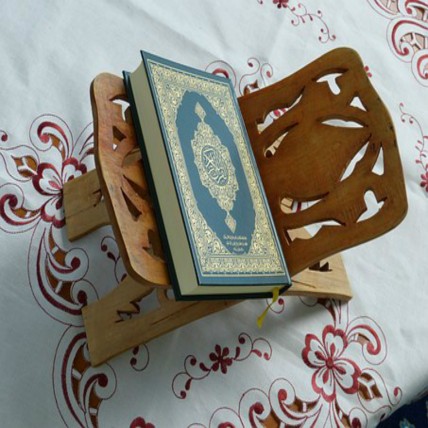The methodology used to interpret the Quran is to
1. Interpret the Quran by way of the Quran: Any one point mentioned in the Quran, may be further explained or interpreted by other verses in the Quran. The Prophet himself applied this methodology himself. For example,
{Those who believe and do not mix their belief with injustice - those will have security, and they are [rightly] guided.}
(Surah al An’aam: 82)
The Sahaabahs (companions) were terrified, as they understood the word ‘injustice’ in this verse to mean any kind of wrong that they might fall into. Upon hearing their concern, The Prophet PBUH directed their attention to another verse they had already memorised.
“Indeed, Shirk [associating partners with Allah] is a great injustice."
(Surah Luqman: 13)
He used injustice as polytheism in verse 31:13 to interpret what injustice meant in the verse 4:115 "
2. Interpret the Quran by way of the Sunnah:
When there is a point not further explained in the Quran, then the Sunnah of the Prophet (PBUH) is used. The proofs for this in the Quran are many, of them Allah’s statement:
{...And We revealed to you the message [i.e., the Qur’ān] that you may make clear to the people what was sent down to them and that they might give thought.}
16:44
So, for example, the command to establish the five obligatory prayers is mentioned both directly and indirectly many times in the Quran. But to understand how to perform these prayers, including the positions and units therein, what's said in each position, the number of units in each prayer, etc. we must return to the Sunnah of the messenger of the Prophet (PBUH).
3. Interpret the Quran by way of the Sahabah (Companions), their students, and the Righteous:
After the Quran and Sunnah are referenced, if a desire for more depth remains, then the authentic statements of the Sahabah (Companions of the Prophet) are referenced. This is because they were present when the Quran was being revealed, and in constant direct contact with the Prophet(PBUH), and thus were the most well informed of how the Quran was to be understood and implemented. And the same goes for the students of those companions, the first three generations, and the righteous scholars thereafter, as the Prophet (PBUH) authentically stated:
“The righteous Islamic scholars are the inheritors of the Prophets…”
4. Interpret the Quran by way of the Arabic Language:
The Islamic scholars well grounded in the Arabic language can also extract benefits from Allah’s unique wording in the Quran. Of course according to the established guidelines, and not in contradiction to the aforementioned sources.


